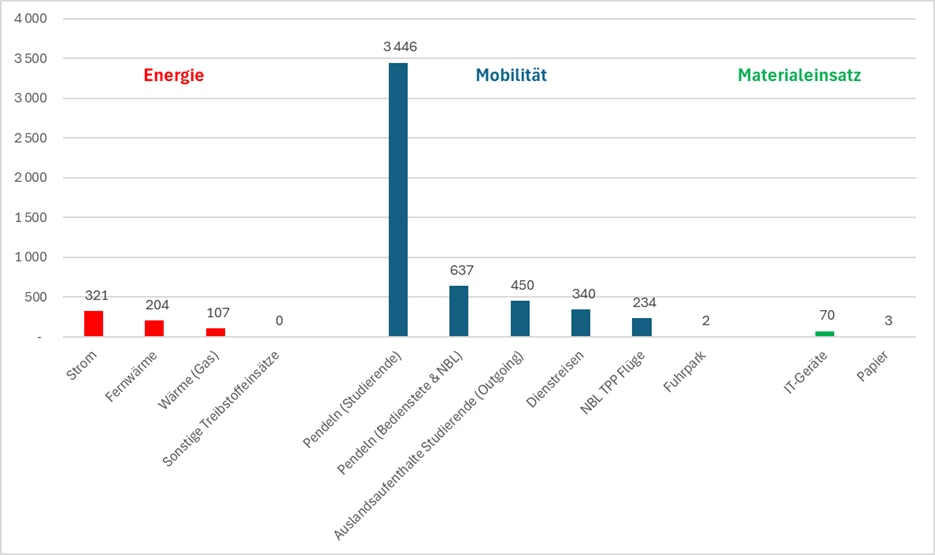The IMC University of Applied Sciences Krems is setting a strong example for sustainability and climate protection by creating a comprehensive CO₂ balance for the first time in order to quantify the contribution of university operations to climate change.

NBL = Part-time teachers; TPP = Transnational Programs
Note: The IMC Krems's carbon footprint is calculated using the ClimCalc tool (a project of the Alliance of Sustainable Universities). The above footprint is preliminary (i.e., data is still being added and updated) and refers to the 2022/23 fiscal year. Only marginal changes are expected.
The data collection for the CO₂ footprint takes into account key emission sources such as energy consumption, mobility, and material use. Based on this data, IMC Krems is pursuing its path toward becoming a climate-neutral university through targeted measures to reduce emissions. "As an educational and research institution, we bear a special responsibility for a sustainable future. The CO₂ footprint is a central element of a transparent and effective climate strategy," says Ulrike Prommer, Chair of the University Executive Board at IMC Krems.
Comprehensive CO₂ balance: Mobility is the most important lever
The CO₂ footprint, compiled using the Greenhouse Gas Protocol, includes not only direct emissions from daily operations and indirect emissions from purchased energy, but also indirect emissions from the value chain, such as commuting. "The mobility—and especially commuting—of students and staff causes by far the largest emissions, while energy and material consumption represent comparatively smaller items," explains Jan Grumiller, head of the CO₂ footprint working group of the Environmental and Sustainability Advisory Board and program director of the Master's program in Environmental and Sustainability Management.
The lower energy and material consumption values are due to the measures already implemented in the areas of energy efficiency, sustainable procurement, sustainable buildings, and more. The newly built Wing U was awarded the klimaaktiv Gold Standard (1,000 out of 1,000 points). In the area of mobility, for example, the company's own vehicle fleet has been increasingly converted to e-mobility and improved efficiency – some of these measures, however, will only be reflected in the balance sheet in the coming years. "Our CO₂ balance also shows how important the expansion of public transport is for organizations in Lower Austria to achieve climate neutrality," explains Grumiller.
Own sustainability institute with bachelor's and master's degree programs
IMC Krems is also a pioneer in the field of sustainability education and research. The Institute for Sustainability and Circular Economy offers two relevant part-time degree programs: the English-taught Bachelor's in Sustainability Management and the German-taught Master's in Environmental and Sustainability Management. "IMC Krems is the top address for aspiring sustainability managers in Austria," explains Institute Director Karl Michael Höferl: "Students learn how to develop sustainable strategies and support companies in their transformation toward climate neutrality and the circular economy – in a practical, scientifically sound, and future-oriented way."
